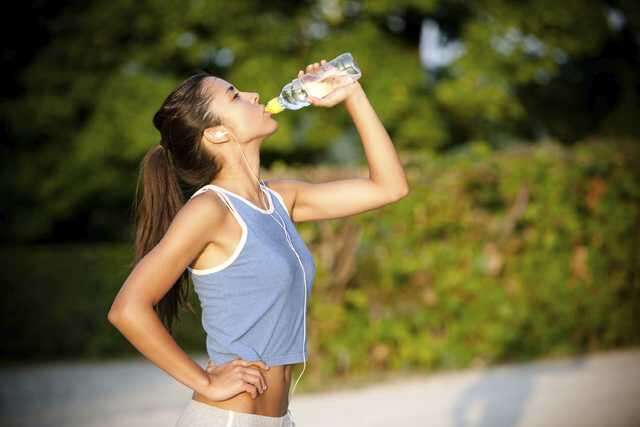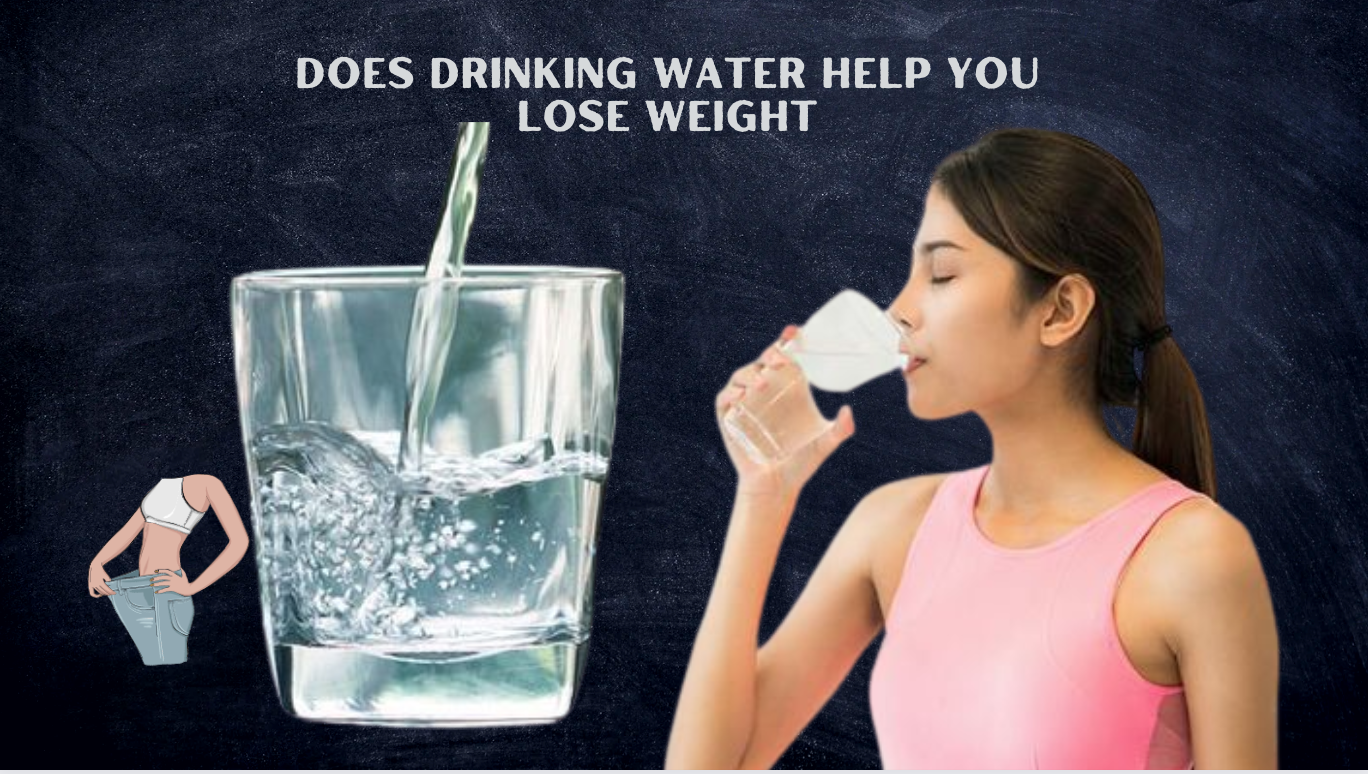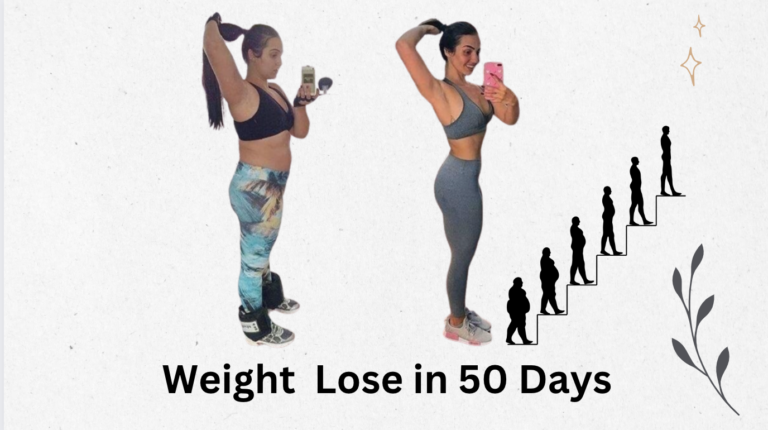Does Drinking Water Help You Lose Weight: Unleash the Secret
Water, a fundamental component of our daily intake, has long been associated with numerous health benefits. But does drinking water help you lose weight? The connection between water consumption and weight reduction has been a topic of interest for scientists, nutritionists, and health enthusiasts alike.
This article delves into the evidence behind this claim, examining how hydration can impact metabolism, appetite, and overall calorie consumption. Join us as we unravel the truth and myths surrounding the role of water in weight management.
How water can aid in weight loss

Water can play a significant role in weight loss through several mechanisms. Understanding these can provide clarity on why staying hydrated might be a key factor in your weight loss journey. Here’s how water aids in weight loss:
Boosting Metabolism:
Drinking water has been shown to temporarily increase the body’s metabolic rate. The process, known as water-induced thermogenesis, involves the body expending energy to heat the consumed water to body temperature, leading to increased calorie burning.
Appetite Suppression:
Consuming water before meals can create a sense of fullness, which can lead to reduced food consumption during the meal. As a result, there can be a reduction in overall calorie intake. Some studies have indicated that individuals who drink water before meals consume fewer calories and, over time, can experience more significant weight loss than those who don’t adopt this practice.
Elimination of Waste and Toxins:
Staying properly hydrated helps the kidneys function at their best, allowing them to flush out waste products and excess fluids from the body. This can help in decreasing water weight and reducing bloating, giving a more accurate representation of actual body weight.
Enhances Workout Performance:
Proper hydration is crucial for optimal muscle function and recovery. When muscles are well-hydrated, they are less prone to cramping and can function at peak performance. This allows for longer and more effective workouts, leading to an increased calorie burn and, subsequently, weight loss.
Reduces Liquid Calorie Intake:
By opting for water over calorie-dense beverages like sodas, juices, and certain sweetened teas or coffees, you can substantially reduce your daily calorie intake. Sugary beverages can contribute to a significant portion of daily calorie consumption without providing the feeling of fullness or satiation. Switching to water helps you avoid these unnecessary calories.
Supports Fat Breakdown:
Water plays a crucial role in the metabolism of stored fat in our body. Adequate hydration ensures the body can effectively metabolize and utilize stored fat. In the absence of sufficient water, the body may struggle to break down fat reserves efficiently, potentially hindering weight loss.
Replaces High-Calorie Beverages:
Drinking water as your primary beverage can help you steer clear of high-calorie drinks that can sabotage weight loss efforts. Beverages like lattes, alcohol, and sugary soft drinks can quickly add up in terms of calorie content. By prioritizing water, you naturally reduce your daily caloric intake.
Helps Digestion:
Proper hydration facilitates the digestion process. Water aids in the breakdown of food in the stomach, ensuring smoother bowel movements and preventing constipation. A consistent and efficient digestive system can positively influence weight loss by ensuring that waste is regularly eliminated from the body.
The impact of water on metabolism and digestion
Water plays a pivotal role in numerous physiological processes within the body, including metabolism and digestion. Understanding its impact on these systems provides insight into its essential nature for overall health and wellness. Here’s a deeper dive into the influence of water on metabolism and digestion:
1. Metabolism:
- Thermogenesis: Drinking water can induce thermogenesis, the metabolic process wherein the body burns calories to produce heat. This phenomenon is observed especially after consuming cold water, as the body needs to expend energy to warm the water to body temperature.
- Enhanced Caloric Burn: Water-induced thermogenesis can lead to an increase in the resting energy expenditure. For instance, studies have shown that drinking 500ml of water can increase metabolic rate by 10-30% for about an hour.
- Fat Metabolism: Proper hydration is essential for the efficient breakdown and utilization of stored fat. A process called lipolysis starts when water molecules interact with fats (triglycerides) to create glycerol and fatty acids. Dehydration can limit this process, potentially slowing fat metabolism.
2. Digestion:
- Saliva Production: Digestion begins in the mouth, where saliva, primarily composed of water, starts the breakdown of carbohydrates through enzymes. Proper hydration ensures a consistent saliva production necessary for the initial stages of digestion.
- Smooth Digestive Flow: Water aids in softening the stool, preventing constipation by ensuring the smooth passage of food through the intestines. A hydrated digestive system allows for efficient nutrient absorption and waste elimination.
- Stomach Acid Balance: Water is required to produce gastric juices. These juices contain enzymes and hydrochloric acid, essential for the breakdown of proteins and other food components in the stomach.
- Nutrient Absorption: After food is broken down in the stomach, it moves to the intestines where nutrients are absorbed. Water aids in the efficient absorption of these nutrients into the bloodstream, ensuring that the body receives the essential components for energy production and cellular function.
Tips for incorporating more water into your diet
Drinking enough water is crucial for maintaining good health and overall well-being. But sometimes it can be challenging to incorporate more water into our daily routine. Here are some tips for incorporating more water into your diet.
1. Get Creative with Infused Water:
If you find plain water boring, try infusing it with natural flavors. Add slices of fruits like lemon, lime, or cucumber to your water bottle to give it a refreshing twist. You can also experiment with herbs like mint or basil for added flavor. Not only does infused water taste great, but it also provides extra nutritional benefits from the fruits and herbs.
2. Set Reminders:
Sometimes we forget to drink water throughout the day because we get caught up in our busy schedules. Setting reminders on your phone or using an app specifically designed for hydration can help you remember to sip water regularly. Additionally, place a reusable bottle of water somewhere visible as a visual reminder to drink more often.
3. Eat Water-Rich Foods:
Incorporating foods with high water content into your diet is another way to increase your hydration levels. Fruits and vegetables such as watermelon, cucumbers, oranges, and tomatoes are not only delicious but also hydrating due to their high water content. Choosing these foods as snacks or incorporating them into meals will add hydration without even realizing it.
4. Track Your Water Intake:
Keeping track of how much water you consume daily can help you identify patterns and make adjustments if needed. Several mobile apps allow you to log your daily intake easily and provide reminders accordingly based on your goals and body weight.
Final Thoughts
In conclusion, there is evidence to suggest that drinking water can indeed aid in weight loss. Water has been shown to increase metabolism, reduce appetite, and enhance the breakdown of fat. Additionally, replacing sugary beverages with water can significantly reduce calorie intake. However, it is important to note that while drinking water may support weight loss efforts, it is not a magic solution on its own. Maintaining a healthy diet and exercising regularly are still crucial components for effective weight loss. So, if you’re looking to shed some pounds, don’t forget to keep hydrating!
FAQs
How much water should I drink to lose weight?
The general recommendation is to drink at least 8 cups (64 ounces) of water per day, but individual needs may vary.
Is it better to drink water before or after a meal for weight loss?
Drinking water before a meal can help you feel fuller and eat less, potentially aiding in weight loss.







